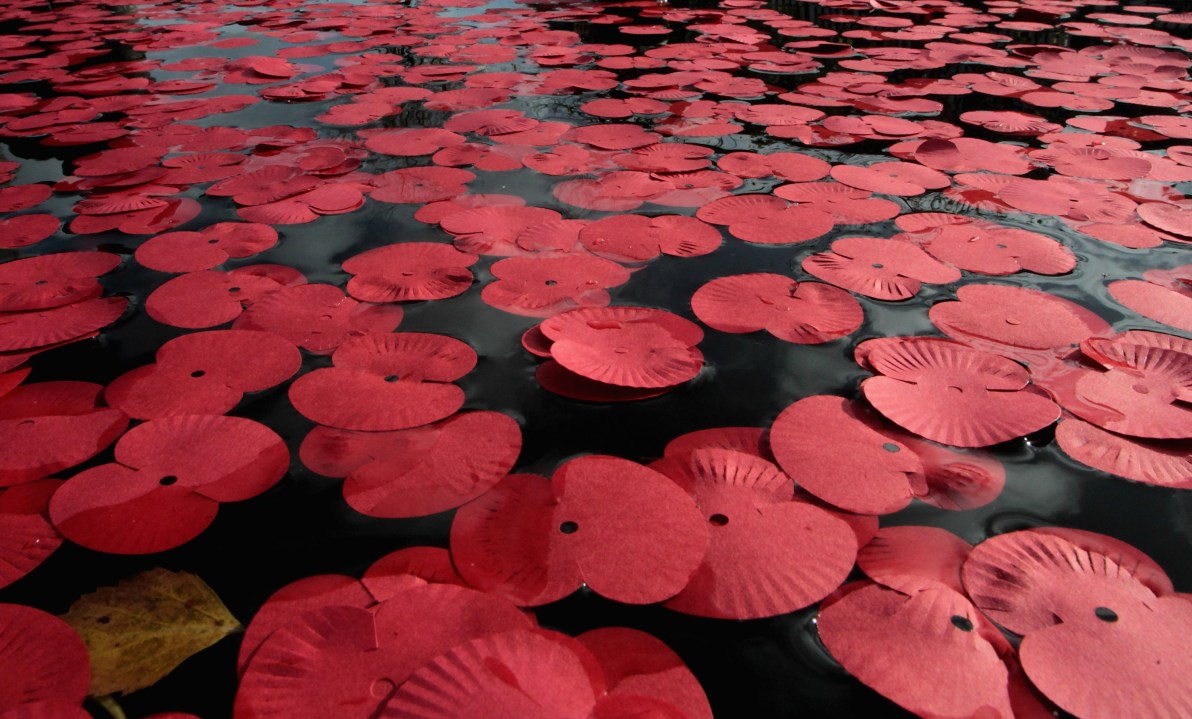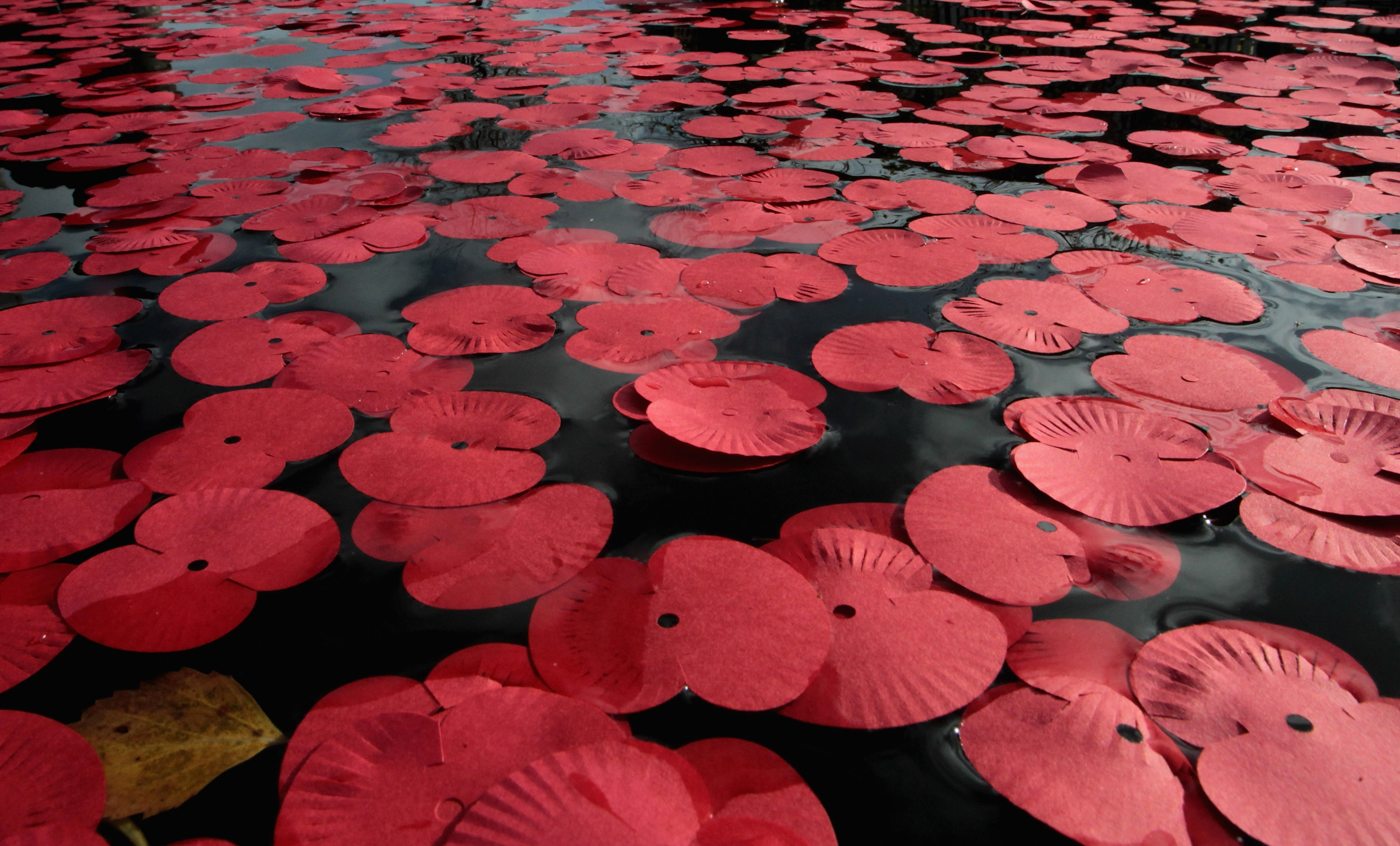
Vernon Scannell, a poet who fought in North Africa in the Second World War, observed in his poem ‘The Great War’:
Everyone in Britain, to an extent barely believable across the rest of Europe, has grown up in the shadow of the Great War — and particularly the trench lines that cut across the fields of Flanders and France for four hundred miles and four long years. The war whose centenary falls in 2014 ended a century in which Britain had, ever since Waterloo, managed to avoid entanglement in Europe’s wars — steering clear, for example, of the Franco-Prussian War of 1870 which both gave dramatic notice of the rising power of Germany, and presented the French with a weeping grievance and an itch for ‘revanche’. Seemingly secure behind the iron walls of her Grand Fleet, Britain held aloof in splendid isolation.‘Whenever the November sky Quivers with a bugle’s hoarse, sweet cry The reason darkens; in its evening gleam Crosses and flares, tormented wire, grey earth Spattered with crimson flowers, And I remember, Not the war I fought in But the one called Great Which ended in a sepia November Four years before my birth’.
When Asquith’s Liberal Government took the fateful decision to get involved there were political consequences. He lost a couple of pacifist Cabinet ministers; the Manchester Guardian issued dark warnings; and conscientious objectors who refused to fight risked humiliation at the hands of white feather-wielding women at best, jail at worst for their beliefs.
But these dissenting voices were in a distinct minority. My father, Frank Jones, in his 60s when I was born, was already an adult then and assured me: ‘Everyone — or nearly everyone — was intensely patriotic’. He and his younger brother Ernest answered Kitchener’s call to arms. My dad, who was myopic, was assigned to Haig’s staff to take the shorthand notes at military conferences. He sat out the war in chateau several miles behind the lines. His closest brush with danger was when a shellburst high in the sky killed a pheasant which fell at his feet. He took it into the mess for lunch.
My uncle Ernest Jones, the baby of the family, was not so lucky. He had perfect eyesight, joined the 1st London Rifle Brigade and after training on the Isle of Sheppey was in the water-logged trenches defending the Ypres salient by the spring of 1915. I still have the only letter he wrote from the trenches to his eldest brother, Tom, who sensibly sat out the war in South America:
‘My experience of war is altogether different to what I expected, and I don’t suppose anybody realises what it means until they have been here a short time. It isn’t war, its literally murder as far as I can see, there’s no sport in it…the Germans hammering at us and we just stick it without retaliating. That’s the difficulty: to stick it without hitting back. The life isn’t exactly hard, only a heavy strain on the nerves, and I’m feeling fine and fit — absolutely in the pink.
The average life here is about a week in the 1st line trenches, 2 or 3 days in the supports, and then another three days in a wood resting. The weather is ripping. It is surprising the spirit of the fellows who were here while I was still wending my way to No. 8, Old Jewry though everybody is as heartily fed up as its possible to be, and everybody says “Roll on Peace”. Enough of war…’
Six weeks later, on 6 July 1915, Ernest was killed in a British attack on a German position near the village of Boesinghe called International Trench. He was eighteen years old. I visit his grave in Talana Farm cemetery whenever I can.
He lies a few yards down the road from another cemetery called Essex Farm where, at the same time as Ernest was experiencing the trenches, a Canadian doctor called John McRae was working in a concrete front line casualty clearing station. In a brief break McRae wrote the poem ‘In Flanders Fields’ which has given us the ubiquitous symbolism of the poppy still marking our remembrance of war.
Thanks to the presence of the war poets (though not McRae) on school curricula, their view of the war has come to be ours. Today the Great War is the war of Owen and Sassoon rather than Haig or Asquith. We tend to think it was a meaningless slaughter carried out for possession of a few years of mud, carried out at the behest of callous, incompetent Generals and idiotic, corrupt politicians who refused to make peace and preferred to bleed Europe white.
However often modern revisionist historians decry the inaccuracy of this view of the war — what might be called the ‘Blackadder version’ of its history — this is the opinion of the majority of people today. It helps to explain popular revulsion at all war, not just the one we call ‘Great’. But it does not alter the reality that those who will not, at the last extremity fight and die for their freedom will lose it.
Now that the last old soldier of the Great War has finally faded away, we live with its Myth rather than its living memory. Tonight, as every night, the fire brigade in Ypres will stop the traffic
under the Menin Gate — where the names of more than 50,000 dead with no known graves are inscribed — sound the ‘hoarse, sweet notes’ of the Last Post and Laurence Binyon’s lines ‘For
the Fallen’ will be read:
I will remember my father and — though I never knew him — Uncle Ernest.‘At the going down of the sun, And in the morning, We will remember them’







Comments